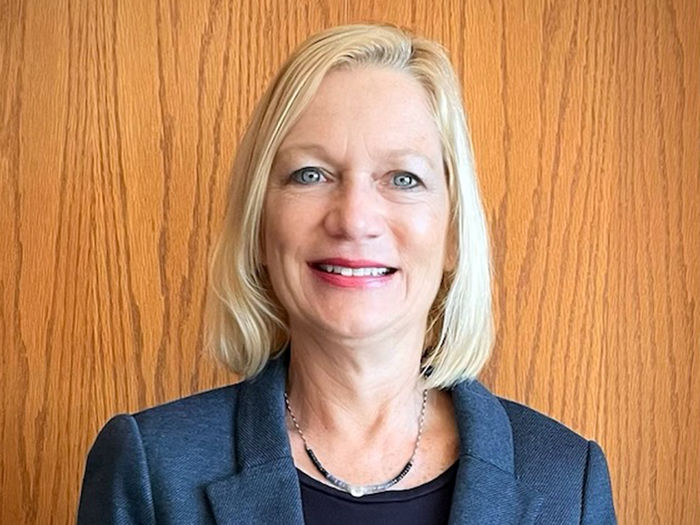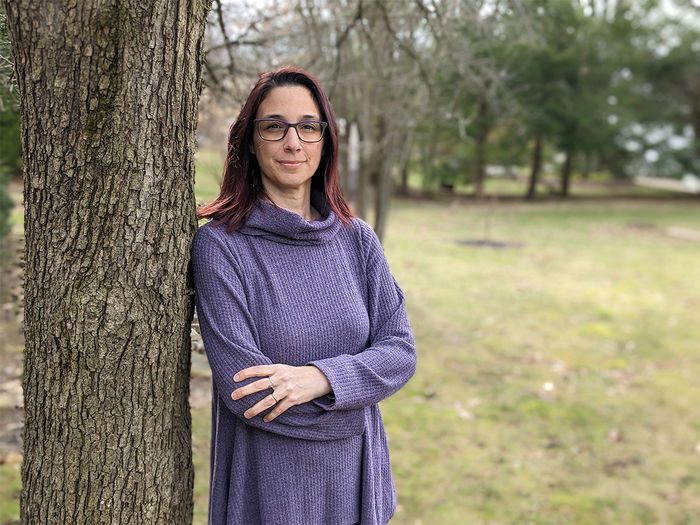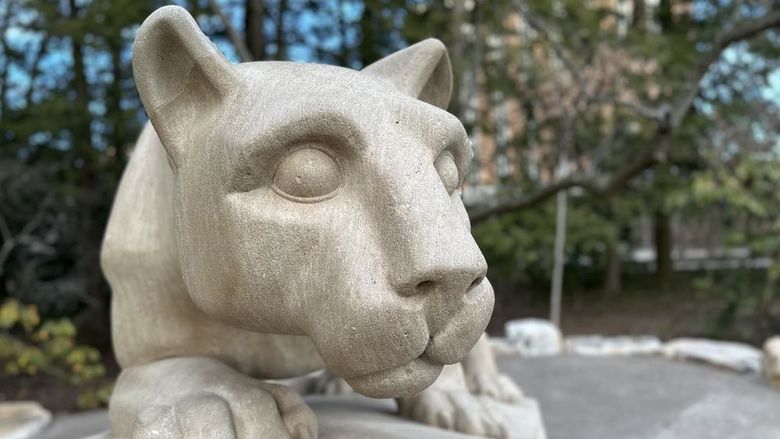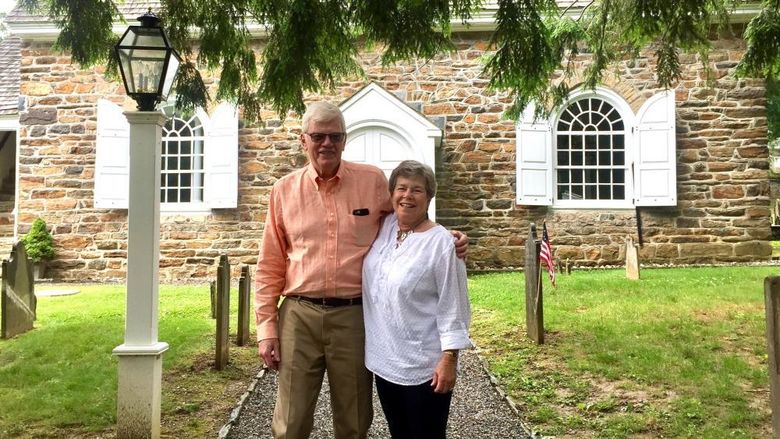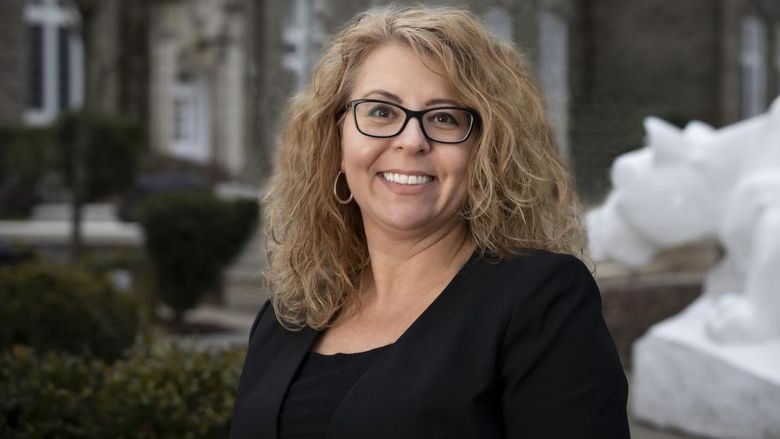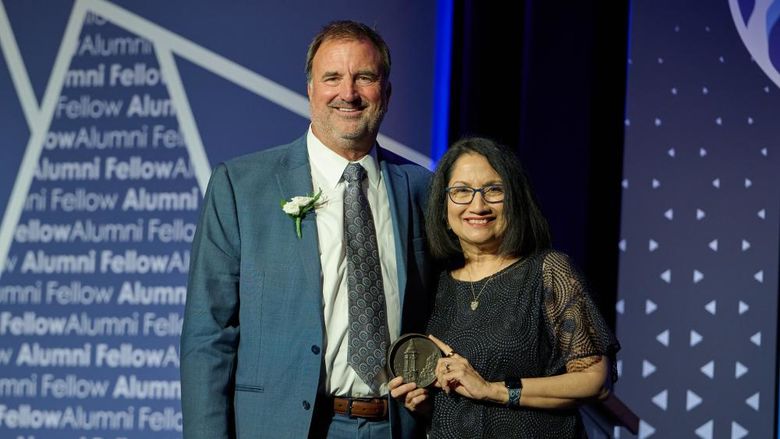UNIVERSITY PARK, Pa. — Carol Putman, associate teaching professor in management at Penn State Behrend, and Liz Agler, academic adviser in the College of Arts and Architecture, have been selected to receive the 2024 Penn State Excellence in Advising Award.
The award, established by the former Undergraduate Student Government’s Academic Assembly and sponsored by each college, annually honors one full-time professional adviser and one full-time faculty member from any Penn State location who have at least two years of advising experience. Selection criteria are based on excellence in general advising, academic and career guidance, enthusiasm and assistance in decision making, and goal setting.
Carol Putman
Nominators said Putman’s tireless effort to help students and her deep understanding of the path students need to take contributes significantly to their success. They said she takes monumental steps to put and keep them on the right path. She also knows each student and guides them toward their strengths.
One nominator said Putman helped guide them through course selections so that they could reach their career aspirations. Then, Putman helped place them in an internship through her connections.
“She has connected me with people within the company, which helps get my foot in the door and my name recognized, directly contributing in achieving the internship position I desired,” a nominator said. “I can say with certainty that Putman’s contributions, passion and desire to see students succeed has elevated my academic career, and has accelerated my professional development to a level that will allow me to achieve great things when I graduate. I will be forever grateful to Putman. She exceeds excellence in academic advising.”
Another nominator said Putman helped diagnose that they were at a career standstill early on in the interdisciplinary business with engineering program. Putman intervened, listened to the student’s issues and found a tutor for help.
“She took the initiative and reached out to me, asking if any guidance is needed,” a nominator said. “I would not be where I am today without her incredible personality and her continuous ‘student-first’ mentality.”
Putman said each student has a unique path to success and finding that path comes through dialog with the student. She has about 50 advisees — and also outreach with prospective students and alumni — so there’s no shortcut to accomplishing her goal of helping her students achieve theirs.
“It is a privilege to have the opportunity to be a positive influence on each advisee’s unique future,” Putman said. “Since 2008, my role has consistently focused on developing and facilitating student success. My student-centered advising approach integrates my teaching, research and service to connect career preparation with industry needs.”
Liz Agler
Nominators said Agler is detail oriented and keeps students on a path to a timely graduation. If she doesn’t have the answer, they said, she finds it.
One nominator said when they fell behind, Agler was able to find a solution to get them on track. Another said Agler always has the answer for their questions, whether they be inside or outside of academics.
“Liz has been an excellent academic adviser,” a nominator said. “She always makes me feel reassured that I am on track with my degree and answers every question I may have about academics or extracurriculars. I am so grateful to have her support throughout my Penn State experience and I know that many of my peers share the same sentiment. Her reputation amongst students is excellent.”
As an adviser for more than 10 years, Agler said, she’s found a dual approach works best: she provides clarity of information though the creation of advising resources and fosters in-depth conversations through developmental advising. This approach, she said, empowers students to take the lead, while she guides them along the way with that deeper understanding of their goals and aspirations.
“In cases of academic difficulty, developmental advising enables a more thorough exploration of underlying issues,” Agler said. “Beyond aptitude or ability, these challenges often stem from emotional or psychological struggles. By creating a supportive environment, I encourage students to talk about these root causes and collaborate on a plan for success.”
